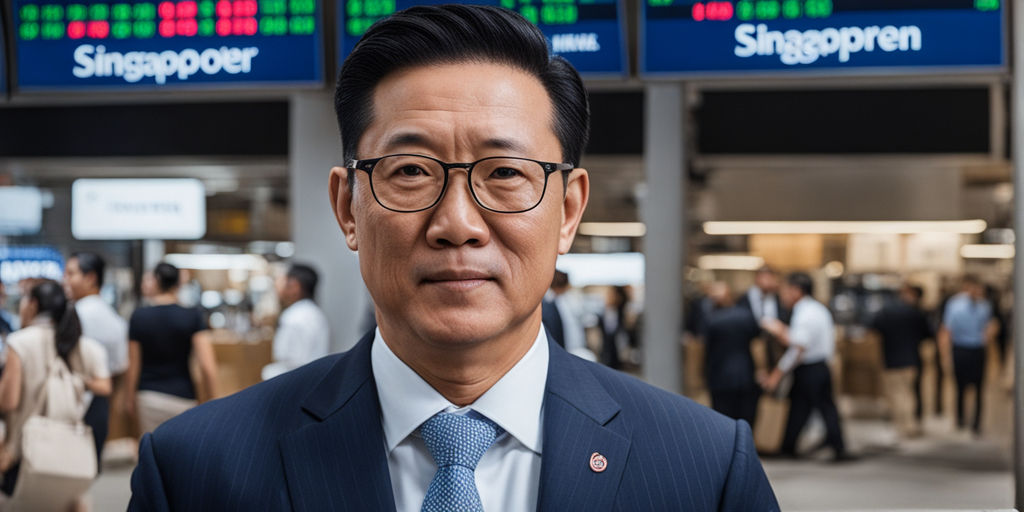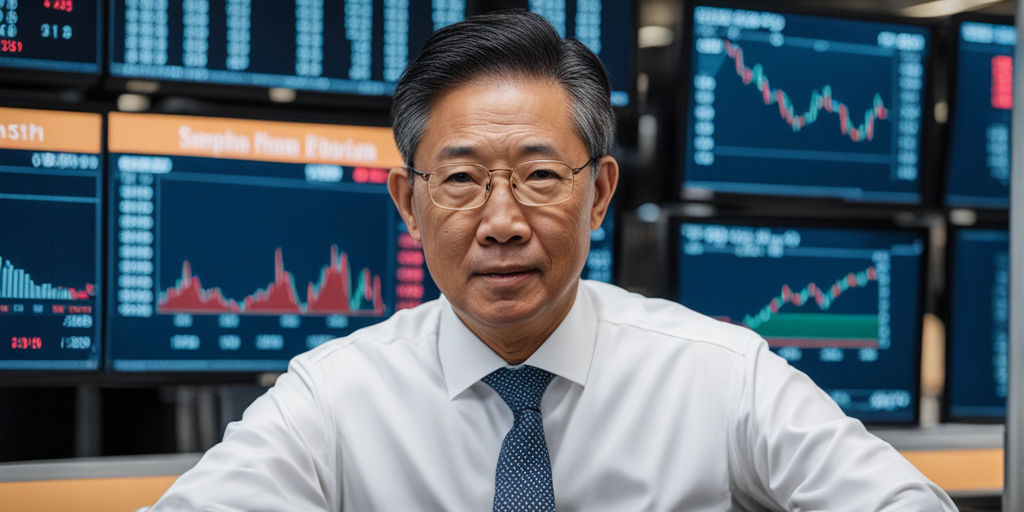
If you’re considering delving into how to start investing in Singapore, you’re taking a significant step towards securing your financial future. Understanding the basics of investing and the specific considerations relevant to Singapore’s investment landscape is crucial for beginners.
As you begin your journey, it’s essential to equip yourself with the necessary knowledge and resources to navigate the investment opportunities available in Singapore.
Setting up your investment foundation involves familiarising yourself with the various types of investments, such as stocks, bonds, and mutual funds, and how they function within Singapore’s financial market. Opening the necessary accounts, understanding the regulatory and tax environment, and leveraging technology and resources are pivotal aspects that will contribute to your success as you start investing in Singapore.
By taking practical steps and maximising your investments, you’ll be well on your way to establishing a solid foothold in the world of investing.
Key Takeaways
- Understanding the basics of investing in Singapore is crucial for beginners.
- Equipping yourself with the necessary knowledge and resources is essential for navigating the investment landscape.
- Taking practical steps and maximising your investments will contribute to your success in investing.
Start Investing in Singapore: Understanding the Basics

If you are a beginner in investing, it is important to understand the basics of investing before you start. This section will introduce you to the fundamentals of investing in Singapore.
What Is Investing?
Investing is the process of putting your money into different investment options to generate income or capital gains. Some popular investment options include stocks, bonds, ETFs, and commodities.
Why Invest in Singapore?
Singapore is a hub for businesses and companies in Asia, making it an attractive destination for investors. The country has stable political and economic environment makes it a safe place to invest. Additionally, Singapore offers many investment options, including stocks, bonds, and ETFs.
Start Investing in Singapore: Types of Investments
You can choose from different types of investments, depending on your investment goals and risk tolerance. Some standard investment options include stocks, bonds, ETFs, and commodities.
Stocks are shares of ownership in a company, while bonds are debt securities issued by companies or governments. ETFs are funds that track a specific index or sector, while commodities are raw materials such as gold, silver, or oil.
Investment Goals and Time Horizon
Before you start investing, it is important to identify your investment goals and time horizon. Your investment goals should be specific, measurable, achievable, relevant, and time-bound. Your time horizon is the length of time you plan to hold your investments. It is important to match your investment goals and time horizon with the appropriate investment options.
In summary, understanding the basics of investing in Singapore is crucial for beginners. You need to identify your investment goals, understand your risk tolerance, and choose the right investment options that match your investment profile and time horizon. By doing so, you can achieve your financial goals and work towards financial independence.
Start Investing in Singapore: Setting Up Your Investment Foundation

Congratulations on taking the first step towards financial freedom! Before you start investing, it is important to set up a strong foundation to ensure that you are financially healthy. Here are some key steps to take to set up your investment foundation:
Assessing Your Financial Health
Before you start investing, you need to assess your current financial health. This includes taking a look at your income, expenses, and debt. Make a budget to see where your money is going and where you can cut back. This will help you free up money to put towards investing.
Creating an Emergency Fund
An emergency fund is essential to have before you start investing. This fund should cover at least three to six months of living expenses. It will act as a safety net in case of unexpected expenses or a loss of income. Make sure to put this money in a high-interest savings account so that it can grow over time.
Understanding Your Risk Profile
Everyone has a different risk profile when it comes to investing. It is important to understand your risk tolerance before you start investing. This will help you choose the right investments for you. If you are risk-averse, you may want to consider investing in low-risk investments such as bonds or index funds. If you are comfortable with risk, you may want to consider investing in individual stocks.
By taking these steps, you will be well on your way to setting up a strong investment foundation. Remember to always have a financial plan in place and to regularly review your investments to ensure that they are still in line with your goals. Good luck on your investment journey!
Start Investing in Singapore: Opening Necessary Accounts

If you’re ready to start investing in Singapore, the first thing you need to do is to open a brokerage account and a Central Depository (CDP) account. Here are some things you need to know about opening these accounts.
Choosing a Brokerage Account
A brokerage account is a type of account that allows you to buy and sell securities such as stocks, ETFs, and other financial instruments. There are many brokerage firms in Singapore, including local banks such as DBS, UOB, and OCBC, as well as other banks such as Standard Chartered, Maybank, and CIMB. You can also choose to open an account with online brokerage firms such as Phillips or online portals.
When choosing a brokerage account, you should consider the following:
- Commission rates: Most brokerage firms in Singapore charge similar commission rates between 0.08% and 0.28% of trading value, or a minimum of between $10 and $28 per transaction. However, some firms may charge higher or lower rates, so make sure you compare the rates before opening an account.
- Trading platform: You should choose a brokerage firm that offers a user-friendly trading platform that suits your needs. Some trading platforms are more advanced and offer more features, while others are simpler and more straightforward.
- Customer service: You should choose a brokerage firm that offers good customer service, so you can get help when you need it.
Understanding the Central Depository (CDP) Account
A Central Depository (CDP) account is a type of account that allows you to hold securities such as stocks and ETFs in electronic form. When you buy or sell securities, the CDP account will reflect the changes in your holdings.
To open a CDP account, you need to provide the following documents:
- Your NRIC or passport
- A bank statement or utility bill as proof of address
- A completed CDP account application form
Once you have opened a brokerage account and a CDP account, you can start trading securities on the stock market. Keep in mind that trading involves risks, and you should only invest money that you can afford to lose.
Practical Steps to Start Investing

Congratulations on taking the first step towards investing in Singapore! Here are some practical steps you can take to start investing:
Developing an Investment Strategy
Before you start investing, it’s important to develop an investment strategy. This involves setting your investment goals, risk tolerance, and time horizon. You should also consider your current financial situation and any future financial obligations you may have.
To develop your investment strategy, you can start by asking yourself the following questions:
- What are your investment goals?
- How much risk are you willing to take?
- What is your time horizon for investing?
- What is your current financial situation?
Once you have answered these questions, you can start to develop a plan that is tailored to your individual needs and goals.
Regular Savings Plan and Dollar-Cost Averaging
One way to start investing in Singapore is through a regular savings plan (RSP) and dollar-cost averaging. An RSP allows you to invest a fixed amount of money on a regular basis, such as monthly or quarterly.
Dollar-cost averaging is a strategy where you invest a fixed amount of money at regular intervals, regardless of the current market conditions. This can help to reduce the impact of market volatility on your investments.
Researching and Selecting Investments
When it comes to investing, it’s important to do your research and select investments that align with your investment strategy. Some popular investment options in Singapore include stocks, bonds, ETFs, and unit trusts.
Before investing in any of these options, it’s important to do your due diligence and research the investment thoroughly. You can also seek the advice of a financial advisor or use a robo-advisor to help you select investments that align with your investment goals and risk tolerance.
One popular ETF option in Singapore is the STI ETF, which tracks the performance of the Straits Times Index. This can be a good option for investors who are looking to invest in the Singapore stock market.
Another option to consider is retail bonds, which are issued by companies and can offer higher yields than traditional savings accounts. However, it’s important to note that retail bonds come with their own risks and should be researched thoroughly before investing.
By following these practical steps, you can start investing in Singapore and work towards achieving your investment goals.
Start Investing in Singapore: Maximising Your Investments

Congratulations on investing in Singapore! Now that you have started investing, it’s important to maximise your returns. Here are some strategies to help you do that.
Reinvesting Dividends and Returns
When you receive dividends or returns from your investments, consider reinvesting them. This means using the money to buy more shares of the same investment. By doing this, you can take advantage of compound interest, which can help your investments grow over time.
Diversification Strategies
Diversification is important in investing. It means spreading your investments across different types of assets, such as stocks, bonds, and exchange-traded funds (ETFs). This can help reduce the risk of losing money if one investment doesn’t perform well. Consider investing in a mix of assets with different levels of risk. For example, you might invest in some dividend stocks, Singapore REITs, and ETFs.
Monitoring and Adjusting Your Portfolio
It’s important to monitor your investments regularly to ensure they are performing well. Check your portfolio at least once a year, or more often if you have a lot of investments. Look at the dividend yield, earnings per share, and investment returns. If an investment is not performing well, consider selling it and investing in something else.
To summarise, maximising your investments involves reinvesting dividends and returns, diversifying your portfolio, and monitoring and adjusting your investments regularly. By following these strategies, you can increase your chances of earning a good income and achieving your retirement goals.
Understanding the Regulatory and Tax Environment

Investing in Singapore is a great way to build your wealth and achieve financial independence. However, before you start investing, it’s important to understand the regulatory and tax environment in Singapore. This will help you make informed decisions and avoid any potential pitfalls.
Singapore’s Investment Regulations
Singapore has a well-regulated investment environment that protects the interests of investors. The Monetary Authority of Singapore (MAS) is the regulatory body responsible for overseeing the financial industry in Singapore. It regulates financial institutions, including banks, insurance companies, and investment companies, to ensure that they comply with the relevant laws and regulations.
When investing in Singapore, you should be aware of the fees and charges that may be levied by financial institutions. These fees can include management fees, transaction fees, and other charges. It’s important to compare the fees charged by different financial institutions to ensure that you get the best deal.
Tax Implications for Investors
Investing in Singapore also has tax implications. The tax system in Singapore is designed to be simple and transparent, making it easy for investors to understand their tax obligations. The tax rate for individuals in Singapore ranges from 0% to 22%, depending on their income.
When investing in Singapore, you should be aware of the tax implications of your investments. For example, if you invest in real estate investment trusts (REITs), you may be subject to a withholding tax on your dividends. Similarly, if you invest in blue chip stocks, you may be subject to capital gains tax when you sell your shares.
To minimise your tax liabilities, you can consider investing in tax-efficient instruments such as Singapore Savings Bonds (SSBs). SSBs are a special type of bond issued by the Singapore government that offer a low-risk investment option with attractive returns.
In conclusion, understanding the regulatory and tax environment in Singapore is crucial for anyone looking to start investing. By being aware of the regulations and tax implications, you can make informed decisions and maximise your investment returns.
Leveraging Technology and Resources

Investing in Singapore has never been easier, thanks to the advancements in technology and the availability of educational resources and tools. As a new investor, you have access to a plethora of resources that can help you make informed investment decisions.
Using Robo-Advisors for Automated Investing
Robo-advisors are automated investment platforms that use algorithms to create and manage investment portfolios for you. They are ideal for new investors who lack experience or knowledge in investing. Robo-advisors are available through various investment platforms such as DBS, OCBC, Maybank, UOB, and Standard Chartered.
Robo-advisors offer a range of benefits, including low fees, automated portfolio rebalancing, and tax-loss harvesting. They also provide a user-friendly interface that makes it easy for you to monitor your investments and track your progress.
Educational Resources and Tools
To become a successful investor, you need to have a good understanding of the market and the various investment options available. Fortunately, there are numerous educational resources and tools available to new investors.
Brokerage websites such as DBS Vickers, OCBC Securities, and Maybank Kim Eng provide a wealth of information on investing, including market insights, research reports, and investment guides. You can also download investment apps such as SGX, InvestingNote, and StocksCafe to stay up-to-date with the latest market news and trends.
In addition to these resources, you can also upgrade your investing knowledge through various online courses and webinars. These resources can help you improve your investment skills and make informed decisions when investing.
In conclusion, leveraging technology and resources can help you become a successful investor in Singapore. By using robo-advisors for automated investing and educational resources and tools, you can make informed investment decisions and achieve your financial goals.
Preparing for Advanced Investment Opportunities

Congratulations! You’ve taken the first step towards investing in Singapore. Now that you have a basic understanding of investing, it’s time to explore some advanced investment opportunities. Here are some options to consider:
Exploring Real Estate Investment Trusts (REITs)
If you’re interested in real estate investing but don’t want to deal with the hassle of owning and managing property, consider investing in Real Estate Investment Trusts (REITs). REITs are companies that own and operate income-generating real estate properties. By investing in REITs, you can earn a share of the income generated by the properties without having to deal with the day-to-day management.
REITs are a popular investment option in Singapore, and there are many different types of REITs to choose from. Some focus on commercial properties such as office buildings and shopping malls, while others focus on residential properties such as apartments and condominiums. Before investing in a REIT, make sure to do your research and understand the risks involved.
Considering Exchange-Traded Funds (ETFs)
Exchange-Traded Funds (ETFs) are a type of investment fund that are traded on stock exchanges, just like individual stocks. ETFs are made up of a basket of different assets, such as stocks, bonds, and commodities. By investing in an ETF, you can gain exposure to a diversified portfolio of assets with just one investment.
ETFs are a popular investment option in Singapore, and there are many different types of ETFs to choose from. Some ETFs track broad market indexes such as the Straits Times Index (STI), while others focus on specific sectors such as technology or healthcare. Before investing in an ETF, make sure to do your research and understand the risks involved.
Investing in Individual Stocks
Investing in individual stocks can be a rewarding but risky investment strategy. By investing in individual stocks, you can potentially earn higher returns than by investing in a diversified portfolio such as an ETF. However, investing in individual stocks requires a lot of research and analysis to identify good investment opportunities.
When investing in individual stocks, it’s important to choose companies that are financially stable and have a good track record of performance. Blue chip stocks such as DBS, Singtel, and Keppel Corporation are popular options for investors in Singapore. However, it’s important to remember that investing in individual stocks comes with a higher level of risk than investing in diversified portfolios such as ETFs or REITs.
In conclusion, there are many advanced investment opportunities available to investors in Singapore. Whether you choose to invest in REITs, ETFs, or individual stocks, make sure to do your research and understand the risks involved. By taking the time to learn about different investment options, you can make informed decisions and potentially earn higher returns on your investments.
Securing Your Financial Future

Congratulations on taking the first step towards securing your financial future! Investing is a great way to build long-term wealth and achieve financial independence. In this section, we will discuss two key aspects of securing your financial future: planning for retirement and building long-term wealth.
Planning for Retirement
Retirement may seem far away, but it’s never too early to start planning for it. The earlier you start, the more time your money has to grow. The first step is to determine your retirement goals and needs. How much money do you need to retire comfortably? What kind of lifestyle do you want to have in retirement? Once you have a clear idea of your goals, you can start working towards them.
One way to save for retirement is through your CPF (Central Provident Fund) account. Your CPF account offers various schemes and plans to help you save for retirement. You can also consider investing in a retirement plan or annuity, which provides a steady stream of income during retirement.
Building Long-Term Wealth
Investing is a great way to build long-term wealth. However, it’s important to invest wisely and understand the risks involved. Before investing, it’s important to determine your investment profile and financial goals. What is your risk tolerance? What are your financial needs and objectives? Based on your investment profile, you can determine the right mix of investments that suits your needs.
When investing, it’s important to consider fees and expenses. Look for low-cost investment products and avoid products with high fees. It’s also important to diversify your investments to reduce risk. Don’t put all your eggs in one basket.
Singtel offers various financial products and services that can help you achieve your financial goals. From investment products to insurance and CPF services, Singtel has everything you need to secure your financial future.
In conclusion, securing your financial future requires careful planning and wise investment decisions. By planning for retirement and building long-term wealth, you can achieve financial independence and enjoy a comfortable retirement.
Additional Considerations for Investors

When it comes to investing, there are a few additional considerations you should keep in mind to ensure you make the most of your investments. In this section, we’ll cover two important areas that you should pay attention to: managing investment risks and handling market volatility.
Managing Investment Risks
Investing always comes with risks, and it’s important to understand and manage them. One way to do this is by diversifying your investments. This means spreading your money across different types of investments, such as stocks, bonds, and ETFs. By doing so, you reduce the risk of losing all your money if one investment underperforms.
Another way to manage investment risks is by understanding your risk tolerance. This is the level of risk you’re comfortable taking on with your investments. It’s important to be honest with yourself about how much risk you can handle, as taking on too much risk can lead to unnecessary stress and anxiety.
Handling Market Volatility
Investing in the stock market can be a rollercoaster ride, with prices fluctuating up and down on a daily basis. It’s important to remember that market volatility is a normal part of investing, and not to panic when prices drop.
One way to handle market volatility is by having a long-term investment strategy. By investing for the long-term, you can ride out short-term market fluctuations and take advantage of long-term growth.
Another way to handle market volatility is by keeping your emotions in check. It’s easy to get caught up in the excitement of a rising market, or the fear of a falling market. But by staying level-headed and sticking to your investment strategy, you can avoid making rash decisions that could hurt your investments.
Overall, by managing investment risks and handling market volatility, you can make the most of your investments and achieve your financial goals. Just remember to stay informed, be patient, and stay focused on the big picture.
Frequently Asked Questions
What’s the most thrilling way to see my money grow in Singapore?
If you’re looking for a high-risk, high-reward investment, you might consider trading in the stock market. However, keep in mind that the stock market can be volatile, and there is always a risk of losing money. It’s essential to do your research and understand the market before investing your hard-earned money.
Can you believe you can start investing with just £100 in Singapore?
Yes, it’s true! You don’t need a lot of money to start investing in Singapore. Some investment options, such as exchange-traded funds (ETFs) and regular savings plans, allow you to start with as little as £100. However, keep in mind that the returns on these investments may be lower than those of higher-risk options.
What are the top investment options in Singapore for 2023 that promise smashing returns?
It’s important to note that there are no guaranteed investment options that promise smashing returns. However, some popular investment options in Singapore include stocks, ETFs, and real estate investment trusts (REITs). It’s important to do your research and understand the risks associated with each investment option before making a decision.
How can a student jump on the investment bandwagon in Singapore?
As a student, you may not have a lot of money to invest. However, you can still start investing with as little as £100. Some investment options, such as robo-advisors and regular savings plans, are affordable and accessible to students. It’s important to start small and gradually increase your investment as you gain more knowledge and experience.
What steps should I take to buy shares in Singapore without a broker, and is it a smart move?
Buying shares without a broker can be risky and is not recommended for inexperienced investors. A broker can offer valuable advice and guidance on which shares to buy and when to sell. However, if you’re an experienced investor and want to buy shares without a broker, you can do so through a direct stock purchase plan (DSPP). Keep in mind that the fees associated with DSPPs can be high, and it’s essential to do your research before investing.
What’s the scoop on trading in Singapore for newbies looking to make a splash?
Trading in Singapore can be exciting and potentially profitable, but it’s important to understand the risks associated with it. It’s essential to do your research, understand the market, and develop a trading strategy before investing your money. Additionally, it’s important to start small and gradually increase your investment as you gain more knowledge and experience.

